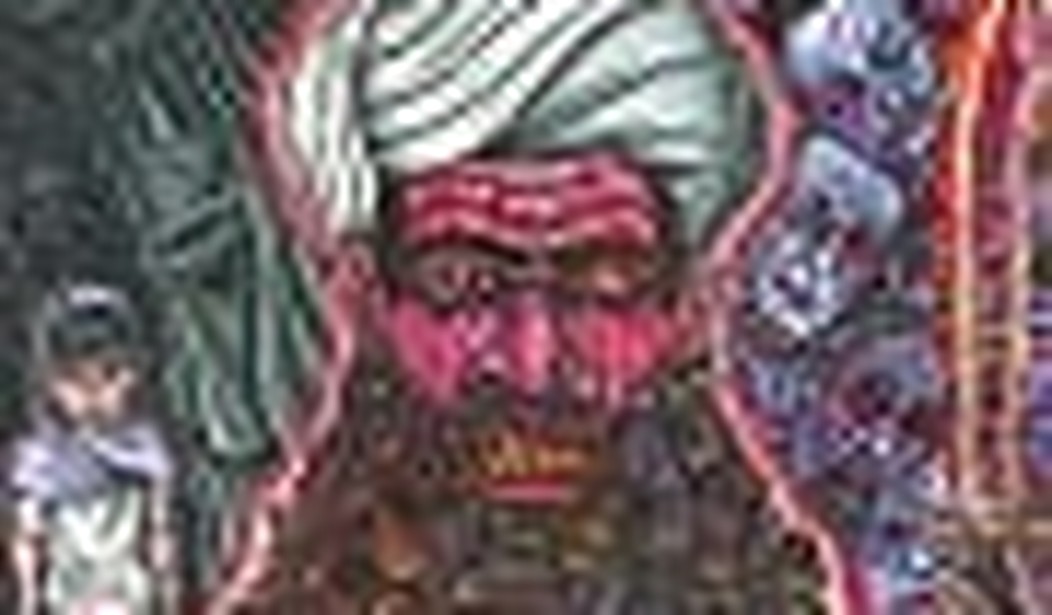No one has to convince me that Islamic terrorists can infiltrate America’s land borders pretty much any time they want. I’ve traveled all over the world documenting the means, methods, and routes Muslim immigrants use to breach U.S. borders from homelands they share with true blue terrorists. If economic or political refugees from state sponsors of terror can do it as often as government capture data shows, so too can suicide bombers.
But in the rarefied genre of this sort of national security/immigration reporting, a durable notion keeps popping up that never fails to stimulate to frenzy in certain circles but which, at least to my mind, comes close to qualifying as alarmist canard. It is that Islamic terrorist organizations have teamed up with Latin American drug gangs like MS-13 or Mexico’s powerful cartels. This, it is believed, can only spell doom — and boom — for America.
The latest offering comes in a March 27 article by journalist Sara A. Carter in the Washington Times. It quotes an array of mostly anonymous U.S. Drug Enforcement Administration and military intelligence sources darkly hinting that Hezbollah and Mexico’s drug cartels are working hand in glove. The evidence offered? Hezbollah has traveled on cartel-controlled routes to smuggle operatives and contraband into the U.S. The piece quotes Michael Braun, a recently retired assistant administrator and DEA chief of operations, who concludes: “They work together. They rely on the same shadow facilitators. One way or another, they are all connected.”
The piece doesn’t flat out declare evidence of a cartel/terror alliance. But it certainly leaves readers with the implication that one exists. My reporting over the years has shown that no such alliance between drug lords and terrorist groups has been validated. Well-placed federal sources and recent Homeland Security Department threat assessments say it has never been so. And even without those, such an alliance makes no sense for either group.
As for the Sara Carter story about Hezbollah, the terror group’s movement along cartel-controlled routes is most likely unavoidable happenstance being made into something more. But this is not evidence of “growing ties with Mexican drug cartels” or collusion. Yet judging by reactions to the story, readers are left with the impression that the drug lords are going to help terrorists attack America.
At the very least, this story and many others like it imply that Hezbollah operatives cannot move through Mexico without cartel endorsement or knowing enablement of Hezbollah goals and ideology. This is a notion that is disproved in interviews I’ve had with Middle Easterners who simply hired the nearest coyote smuggler hanging around the local taco stand. Even in this era of rigorous cartel occupation of routes, I question whether they are taking bureaucratic pains to micromanage the workaday coyote smuggling.
The Carter story does nothing to add any validity to the canard of a drug gangs/terrorist alliance. Over the years, I’ve dealt with counter-terrorism officials who’ve worked in Mexico and are in the know. All of them say the double bad boy alliance canard, where objectives are mutually known and supported, is patently unfounded. It’s possible that Carter’s anonymous government sources know something my anonymous sources in other agencies do not. Carter is correct that the cartels control routes and Hezbollah does operate illegal contraband businesses throughout Latin America. But not one of my sources will connect them. One former FBI agent who spent years working counter-terrorism intelligence inside Mexico after 9/11 sent me an unsolicited email regarding Carter’s story, saying: “I disagree in principle with the Hezbollah/drug cartel linkages but people ‘sell’ this junk intel to elevate their programs and increase their budgets.”
I have to wonder if he’s right in implying that Carter’s DEA and military intelligence sources are keeping this canard alive to shore up political support for funding.
Indeed, other Carter stories asserting the drug gang/terrorist alliance always seem to come from DEA or Defense Department sources. These people would indeed stand to gain the increased budgets and manpower they propose every year — the lifeblood of their bureaucracies — if enough people with influence in Congress decide to take their intelligence claims to heart.
The other main problem with the drug-gang/terrorist alliance claim is that it’s illogical, especially if you know anything at all about the sociology of either group or the way cross-border smuggling typically works. It’s possible that Hezbollah has come up with something worth horse-trading with the drug lords that none of us can even fathom.
But drug syndicate leaders tend to be pretty smart bureaucrats themselves. They understand they would invite a thorough militarization of the border should a terrorist they helped smuggle into the country actually blow something up. One source went so far as to tell me drug cartel operatives were among his best snitches when it came to Arab travelers. They rat them out with regularity for fear they could hurt business.
Nothing could be worse for the drug business. Moving tons of dope certainly pays better than any check Osama bin Laden could write. Hezbollah is a highly insular religious group that wouldn’t risk compromising its organizational plans by inviting hunted drug cartel operatives into its lair, especially since they tend to often be captured and interrogated. Notice how there has never been a single court case on either side of the border that has divulged anything about the two groups collaborating since 9/11. Surely some document would have come out by now. Plus, as I’ve already mentioned, Middle Easterners don’t need drug cartels to cross the border. Even in the case of Salim Boughader Mucharrafille — whom Carter accurately notes moved hundreds of paying Lebanese through Mexico and over the U.S. border (including a now-convicted Hezbollah operative) — no evidence was ever found of serious cartel involvement. I’ve interviewed Iraqis who made it across the American frontier after paying a couple of thousand bucks to complete strangers who work as coyote smugglers, where any cartel link would be superfluous.
But don’t just take my word for it. The same government officials whom Carter quotes recently produced a 38-page document called the Homeland Security Threat Assessment. Produced by DHS’s Office of Intelligence and Analysis when George W. Bush was still in office, it’s a 2008-2013 outlook on the national security threats America faces at home and abroad. Evidently, the OIA has also heard the legend of a drug lord/terrorist partnership.
The threat assessment explains that Hezbollah is definitely capable of infiltrating operatives through American borders on missions against “symbolic or military targets.” And it even credits Hezbollah as “the group most capable of conducting a bombing campaign” on American soil. But the assessment flatly discounts any significant alliance between cartels and terrorists:
Mexican drug and alien smuggling organizations have little incentive to risk their lucrative operations by facilitating terrorists across the border.
It then goes on to explain the unlikelihood of any Islamic extremist group allowing outsiders in on the whereabouts of its operatives or attack plans. Page 24 states:
Human smuggling networks operate well-established transit routes into the United States that terrorists seeking illicit entry could exploit. To avoid the use of human smuggling intermediaries and heighten operational security, extremists may establish criminal smuggling organizations more directly under their control.
That doesn’t mean Hezbollah can always move around Mexico without possibly paying “taxes” to a cartel. But that’s a far cry from partnership, endorsement of anti-American goals, or material support for them. If terrorist groups like Hezbollah prefer to keep their big terrorist plots in the family, it’s unlikely that Latin American drug runners who worship El Muerto rather than Allah are ever going to fit in.
I hope I’m right.









Join the conversation as a VIP Member